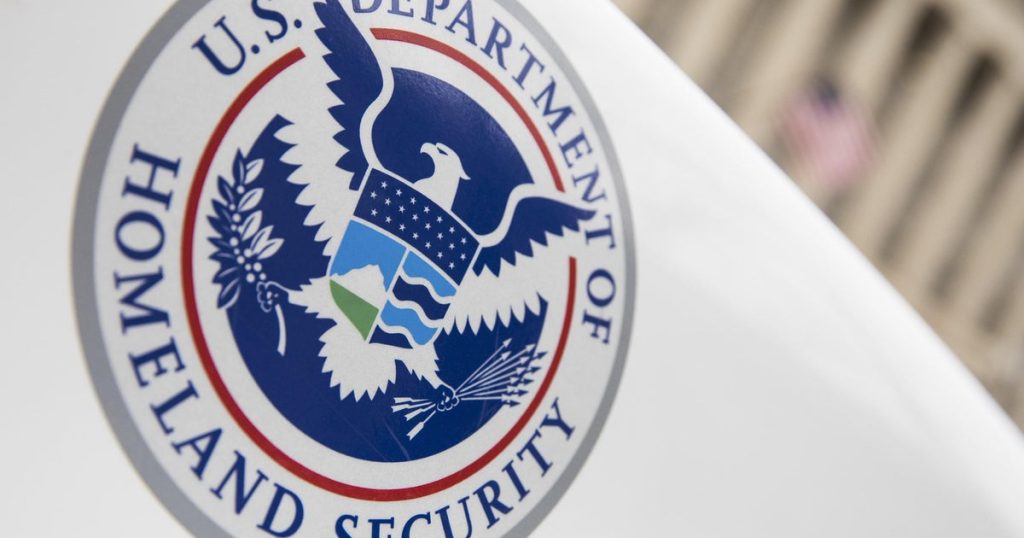A federal judge has raised serious concerns regarding the deportation of a U.S. citizen, a 2-year-old girl from Louisiana, who may have been sent to Honduras alongside her mother and sister without proper due process. The ruling, issued by Judge Terry Doughty, indicates a strong suspicion that the federal government broke legal protocols in this case. As the situation unfolds, federal authorities and legal representatives are engaged in a heated debate over the immigration status of the family involved.
| Article Subheadings |
|---|
| 1) Legal Proceedings Initiated by the Federal Judge |
| 2) Background of the Family’s Immigration Status |
| 3) Details of the Detention Process |
| 4) Attempts to Secure Legal Custody |
| 5) Broader Implications of U.S. Immigration Policy |
Legal Proceedings Initiated by the Federal Judge
The recent ruling by Judge Terry Doughty in the U.S. District Court for the Western District of Louisiana highlights the ongoing legal complexities surrounding immigration enforcement. The judge expressed concerns that the young girl, identified in court documents as V.M.L., was deported without a clear judicial process. In a court order released on Friday, Judge Doughty articulated a “strong suspicion” that the government had acted unlawfully during the deportation. The implications of such a ruling could prompt a reevaluation of protocols regarding the deportation of minors and U.S. citizens.
Background of the Family’s Immigration Status
The girl’s circumstances come into focus amid a broader discussion about the complexities of immigration law. Born in Baton Rouge, Louisiana, in January 2021, her citizenship casts a shadow over the legality of her recent deportation. While the exact immigration status of her family remains unclear, reports indicate that her mother, who has been involved in regular check-ins with Immigration and Customs Enforcement (ICE) for several years, was in a precarious situation. ICE has emphasized that deportation of families, including U.S. citizen children, frequently occurs due to parents’ decisions to accompany them during immigration proceedings.
Details of the Detention Process
The ordeal began when the girl’s family attended what was supposed to be a routine check-in with ICE agents in New Orleans. According to the family’s legal petition, they were detained during this visit. The detention process can often be swift and unsettling, as was the case here. Following their arrest, the family was transported to an ICE field office, where the father received paperwork confirming the mother’s custody by ICE. The urgency of the situation escalated when an attorney for the family promptly notified ICE that V.M.L. was a U.S. citizen, submitting a copy of her birth certificate. Still, the legal team faced immediate resistance as ICE officials moved forward with their deportation plans.
Attempts to Secure Legal Custody
Faced with the impending deportation of his daughters, the girl’s father acted quickly, filing for a temporary transfer of legal custody. This legal maneuver is common in family law, particularly when parents are facing deportation. Under Louisiana law, the father’s intention was to grant custody to his sister-in-law, a U.S. citizen. However, ICE agents remained unyielding throughout the night, refusing to acknowledge the request for the girl’s release to a custodian. To complicate matters, the ICE agent informed the father that his own custody would also be in jeopardy if he were to attempt to collect his daughter, further complicating the situation.
Broader Implications of U.S. Immigration Policy
As this case gains traction in the public arena, it raises critical questions about U.S. immigration policy, particularly under the current administration’s directives. President Trump has been known for his stringent immigration policies, which have sparked numerous lawsuits and public outcry. The recent incident serves as a focal point for advocates who argue that such policies may violate due process and the rights of U.S. citizens. Critics point to instances of wrongful deportations, including that of another individual, Kilmar Abrego Garcia, who was incorrectly sent to El Salvador. The ongoing debates around these issues underscore the urgent need for reform in immigration procedures.
| No. | Key Points |
|---|---|
| 1 | Judge Terry Doughty raised concerns over the deportation of a U.S. citizen, a 2-year-old girl. |
| 2 | The family was detained during a routine ICE check-in in New Orleans. |
| 3 | Legal efforts were made to secure custody of the girl amidst deportation proceedings. |
| 4 | The case highlights broader concerns regarding U.S. immigration policy and enforcement practices. |
| 5 | The situation has drawn attention to possible violations of due process in deportation cases. |
Summary
This case underscores the complexities and challenges involved in U.S. immigration policies, particularly regarding the treatment of U.S. citizen children during deportation proceedings. As legal battles unfold, the implications of this incident may catalyze discussions around the need for reforms in handling such sensitive cases. It also brings to light the potential consequences of strict immigration enforcement, raising ethical and legal questions that necessitate immediate attention.
Frequently Asked Questions
Question: What does due process mean in immigration cases?
Due process in immigration cases refers to the legal requirement that individuals are entitled to fair treatment and a hearing before the government can deport them.
Question: How can U.S. citizens be affected by immigration enforcement?
U.S. citizens can be affected if government agents mistakenly deport them or fail to recognize their citizenship status, often leading to family separations.
Question: What steps can be taken to prevent wrongful deportations?
Preventing wrongful deportations may involve better training for ICE agents, clearer communication with families, and strengthened legal protections for U.S. citizen children.


